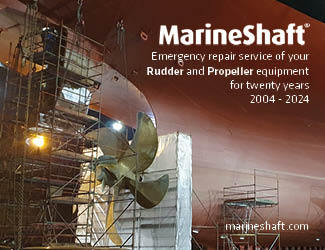COMPIT Award winner Herbert J. Koelman talks about changing user demands, innovation within the IT industry, and says why the Dutch cluster functions very well
Mr. Koelman, first of all congratulations for winning this year’s COMPIT Award. From your perspective, what are the main[ds_preview] drivers in Computer Aided Ship Design: computer technology, user needs, or rather changes within the shipping industry like environmental regulations?
Herbert J. Koelman: Obviously, the advances in computer technology bring new possibilities, but more important are changing user demands, which are in turn partly driven by changes in the legislation. In the 1990s, new damage stability requirements were arising after a couple of disasters. In these days a lot of environmental requirements translate into legislation that make the design of ships much more difficult and change the optimum. You need to have proper tools to find this optimum.
In your paper you mention that designers often don’t apply appropriate methods. What are the reasons for this behaviour?
Koelman: The main reason is conservatism. If people are used to a certain way of working they are not very keen on changing that. That is even not related to age, but purely a psychological matter.
You also talked about changes in the operating system environment that might affect Computer Aided Ship Design. Expecting a further decline of Microsoft Windows, what would this mean for you as a developer of ship design software?
Koelman: Microsoft has provided a common platform – how bad it might have been – which is a big advantage for us. As a small company it is much easier to maintain your product for one platform than for five or six platforms. If that changes, chaos might be the result. There is the danger of fragmentation and incompatibilities.
As a Dutch company, how do you see the grade of innovation within Europe compared to Asia or North America?
Koelman: Generally speaking, innovation in Europe is doing quite well. There are a lot of companies like ours which have to collaborate just because they are rather small. This collaboration makes us more innovative. Especially in the Netherlands the maritime cluster functions very well.
What is your purpose for taking part in the COMPIT conference?
Koelman: This is my fourth time now and basically the purpose is to get an overview and learn new things. It is very helpful to meet colleagues from all over the world who are busy with the same things I am. In the Netherlands I can maybe find three of them because our field of expertise is so highly specialized.
Nikos Späth

















